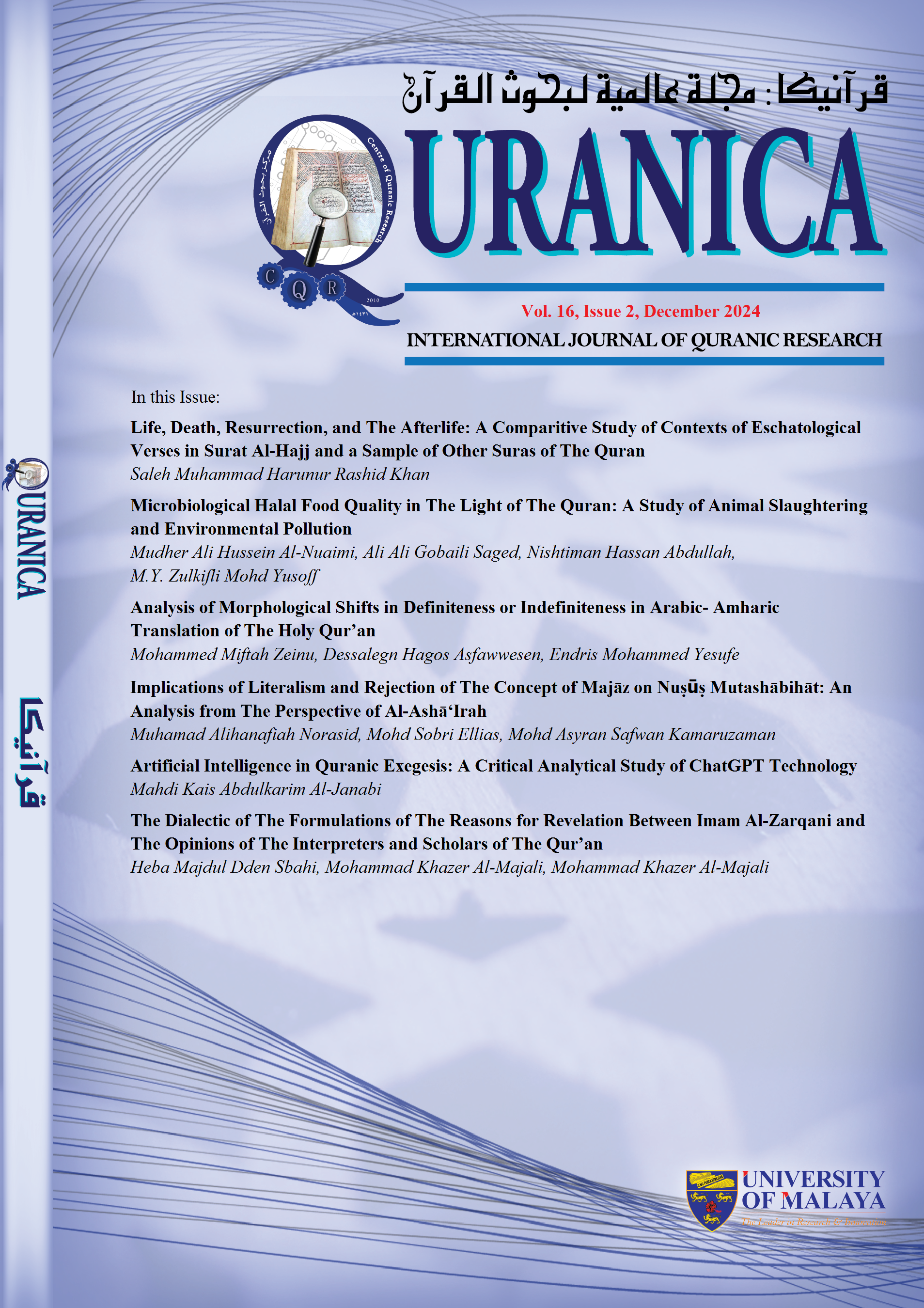Implications of Literalism and Rejection of The Concept of Majāz on Nuṣūṣ Mutashābihāt: An Analysis from The Perspective of Al-Ashā‘Irah
Main Article Content
Abstract
The interpretation of naṣ mutashābihāt, whether from the Qur'an or the Hadith, as well as their comprehension, must adhere to the methodologies outlined by reputable scholars. This is deemed crucial to ensure that the understanding derived from such texts aligns with the teachings of Prophet Muhammad, particularly in the context of creed and belief. However, there exists a group of individuals who reject the methodologies established by these scholars, despite the fact that one of the foundational principles of their approach to understanding naṣ mutashābihāt is the acknowledgment of the concept of majāz (metaphor) and the rejection of literalism. This is because the denial of majāz concerning naṣ mutashābihāt and a literal interpretation of such texts often lead to misunderstandings of the intended meanings of the naṣ. Hence, this study aims to examine and analyze the implications of literalism and the rejection of the concept of majāz on naṣ mutashābihāt from the perspective of al-Ashā‘irah. This is a library-based study that employs descriptive analysis of the texts of esteemed scholars in the fields of exegesis and theology concerning naṣ mutashābihāt. The study finds that literalism in engaging with naṣ mutashābihāt and the denial of the concept of majāz in the Qur'an and Hadith result in the crimes of anthropomorphism (tajsīm) and assimilation (tashbīh) among those who associate themselves with Islam, ultimately equating Allah Ta‘āla with His creation under the guise of interpretation and religion.
Downloads
Article Details
Disclaimer
QURANICA makes every effort to ensure the accuracy of all its contents. However, opinions, discussions, views and recommendations are expressed in this journal do not necessarily reflect the official policy of QURANICA or views of its editors or publishers. Therefore, QURANICA and its publishers will not be liable for any controversy may be arisen. The journal reserves the right, at its sole discretion, to change its terms and conditions of publications.
Copyright
It is a condition of publication that manuscript submitted to the journal have not been published, accepted for publication, nor simultaneously submitted for publication elsewhere. By submitting a manuscript, the author(s) agrees that copyright for the article is transferred to the publisher, if and when the manuscript is accepted for publication.
